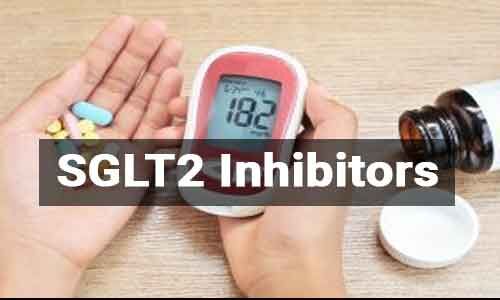- Home
- Medical news & Guidelines
- Anesthesiology
- Cardiology and CTVS
- Critical Care
- Dentistry
- Dermatology
- Diabetes and Endocrinology
- ENT
- Gastroenterology
- Medicine
- Nephrology
- Neurology
- Obstretics-Gynaecology
- Oncology
- Ophthalmology
- Orthopaedics
- Pediatrics-Neonatology
- Psychiatry
- Pulmonology
- Radiology
- Surgery
- Urology
- Laboratory Medicine
- Diet
- Nursing
- Paramedical
- Physiotherapy
- Health news
- Fact Check
- Bone Health Fact Check
- Brain Health Fact Check
- Cancer Related Fact Check
- Child Care Fact Check
- Dental and oral health fact check
- Diabetes and metabolic health fact check
- Diet and Nutrition Fact Check
- Eye and ENT Care Fact Check
- Fitness fact check
- Gut health fact check
- Heart health fact check
- Kidney health fact check
- Medical education fact check
- Men's health fact check
- Respiratory fact check
- Skin and hair care fact check
- Vaccine and Immunization fact check
- Women's health fact check
- AYUSH
- State News
- Andaman and Nicobar Islands
- Andhra Pradesh
- Arunachal Pradesh
- Assam
- Bihar
- Chandigarh
- Chattisgarh
- Dadra and Nagar Haveli
- Daman and Diu
- Delhi
- Goa
- Gujarat
- Haryana
- Himachal Pradesh
- Jammu & Kashmir
- Jharkhand
- Karnataka
- Kerala
- Ladakh
- Lakshadweep
- Madhya Pradesh
- Maharashtra
- Manipur
- Meghalaya
- Mizoram
- Nagaland
- Odisha
- Puducherry
- Punjab
- Rajasthan
- Sikkim
- Tamil Nadu
- Telangana
- Tripura
- Uttar Pradesh
- Uttrakhand
- West Bengal
- Medical Education
- Industry
SGLT2 inhibitors use tied to lower pneumonia risk in diabetics: Study

China: Patients with type 2 diabetes using SGLT2 inhibitors are at a significantly lower risk of pneumonia and pneumonia mortality versus those using DPP4 Iinhibitors, reveals a reent study. The study was published in the Journal of Clinical Endocrinology and Metabolism on 08 November 2021.
Diabetes patients are known to be at a higher risk of pneumonia and pneumonia mortality. Sodium glucose co-transporter 2 inhibitors (SGLT2is) are the latest class of glucose-lowerinf agents that have shown to reduce pneumonia risk in clinical trials. However, not much is known about the real-world effectiveness of SGLT2is on the risk of pneumonia. To determine the same, Ching-Lung Cheung, The University of Hong Kong, Hong Kong SAR, China, and the team aimed to investigate the associations between SGLT2is use and the risk of pneumonia and pneumonia mortality versus dipeptidyl peptidase-4 inhibitors (DPP4is) using an electronic medical database in Hong Kong in a A retrospective cohort study.
The "prevalent new-user" design was adopted to account for the previous exposure to the study drugs being compared. To balance the baseline characteristics of the 2 groups, propensity score (PS) matching (1:4) was used.
The researchers collected electronic health data of type 2 diabetes patients using SGLT2is and DPP4is between 2015 and 2018 from the Clinical Data Analysis and Reporting System. The main outcomes were pneumonia incidence and mortality.
The PS-matched cohort consisted of 6664 users of SGLT2is and 26 656 users of DPP4is, and were followed for a mean duration of 3.8 years.
Following were the study's key findings:
- Poisson regression showed that SGLT2is use was associated with lower risk of pneumonia compared with DPP4is with an absolute rate difference of 4.05 per 1000 person-years.
- The corresponding incidence rate ratio was 0.71.
- Similar reduction in risk of pneumonia death was observed (hazard ratio 0.57).
The researchers concluded, compared with DPP4is, SGLT2is use was associated with a reduced risk of pneumonia and pneumonia mortality in a real-world setting.
Reference:
Philip C M Au, Kathryn C B Tan, Bernard M Y Cheung, Ian C K Wong, Ying Wong, Ching-Lung Cheung, Association Between SGLT2 Inhibitors vs DPP-4 Inhibitors and Risk of Pneumonia Among Patients With Type 2 Diabetes, The Journal of Clinical Endocrinology & Metabolism, 2021;, dgab818, https://doi.org/10.1210/clinem/dgab818
Dr Kamal Kant Kohli-MBBS, DTCD- a chest specialist with more than 30 years of practice and a flair for writing clinical articles, Dr Kamal Kant Kohli joined Medical Dialogues as a Chief Editor of Medical News. Besides writing articles, as an editor, he proofreads and verifies all the medical content published on Medical Dialogues including those coming from journals, studies,medical conferences,guidelines etc. Email: drkohli@medicaldialogues.in. Contact no. 011-43720751


